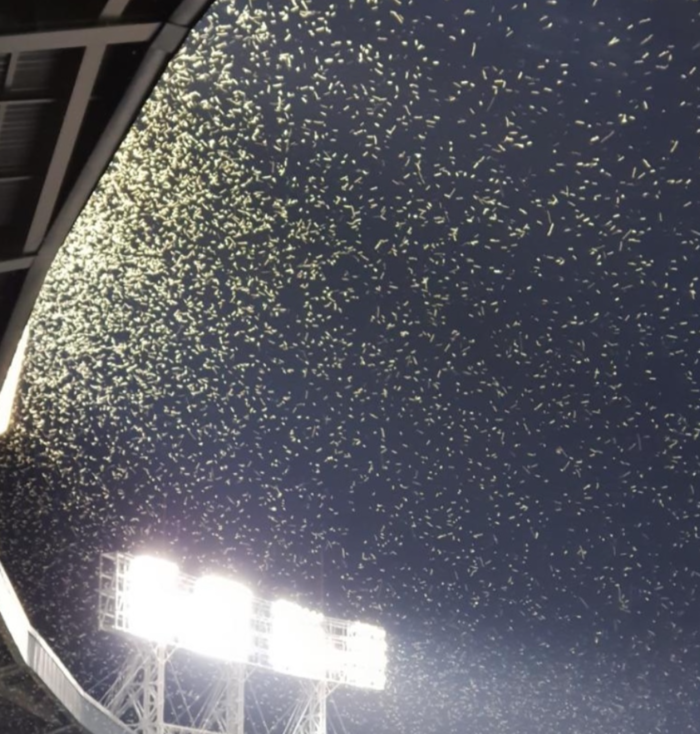
The Seoul Metropolitan Government includes new types of insects such as the so-called "love bug" and "tinkerbell," which have recently emerged in the metropolitan area. These insects are not known to be pests that mediate infectious diseases, but there is a possibility that they may cause inconvenience to citizens and cause safety accidents due to mass appearance.
On the 27th, the Seoul Metropolitan Government promulgated 75 ordinances and regulations, including the Seoul Metropolitan Government Ordinance on Management and Control of Great Outbreak Insects, which provided the basis for supporting eco-friendly control of large-scale insects.
A large outbreak insect refers to an insect that appears in large numbers in areas close to citizens, such as Loveburg and Tinkerbell, causing significant physical and mental damage or discomfort to citizens.
Recently, complaints against Loveburg and Tinkerbell have continued in the Seoul metropolitan area. This is because it causes discomfort and disgust due to its unusual appearance and habit of flying to people. In particular, the scene of a large number of insects flocking to the lighting of the ballpark where night games are held has been highly controversial.
The number of Loveburg complaints received by the Seoul Metropolitan Government over the past three years is also on the rise. In 2022, the number of civil complaints was 4,378, mainly in the northwest, including Eunpyeong-gu, Seodaemun-gu, and Mapo-gu, but in 2023, the number of complaints increased significantly to 6,174 as the number of areas appeared expanded throughout Seoul. Last year, there were 9,296 related complaints by early July. According to the Seoul Institute, large-scale insects such as Loveburg are expanding not only to the metropolitan area but also to the Chungcheong area.
The reason why the Seoul Metropolitan Government has started to designate this ordinance is to create a basis for control. Under the current regulations, local governments did not have enough means to respond to civil complaints if they were not insects mediating infectious diseases stipulated in the Infectious Disease Prevention and Management Act. On the other hand, disinfection obligations are imposed on the head of the district office and others for infectious disease carriers such as rats and malaria mosquitoes.
However, there is a view that Loveberg is known as a pollinator, and it plays a role in greasing the soil during larvae, is non-toxic, does not bite humans, or transmit diseases, so it is a pterodactyl. For this reason, some civic groups have a negative position on control.
In response, an official from the Seoul Metropolitan Council said, "There is a need to systematically manage and respond to large-scale insects that appear widely in downtown Seoul and cause inconvenience to citizens, safety accidents, and property damage, even if they do not mediate infectious diseases."














